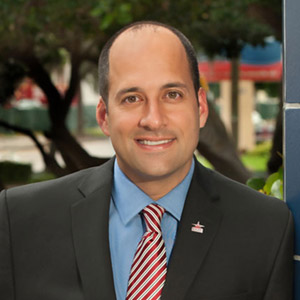Rogers Takes OCD Services to Tampa Bay
Posted on 03/17/14 04:04:am
Eric Storch, Ph.D., a University of South Florida (USF) Health Morsani College of Medicine professor and clinical psychologist, will serve as clinical director through an affiliation agreement with USF Health for his professional services.
One in 10 people suffer from some form of OCD, which is a mix of obsessive and compulsive thoughts and actions with disabling effects that can disrupt relationships, impede activities of daily living and make it difficult to work. Rogers’ Tampa Bay office is an extension of one of the most comprehensive OCD treatment programs in the country. It will initially offer intensive outpatient programming for children, adolescents and adults, with plans to add a partial hospitalization program for those same ages.
This is the first satellite location outside of Wisconsin for Rogers, which operates the state’s largest, not-for-profit psychiatry and addiction services health system.
“Rogers has a real depth of experience and programming in OCD treatment,” said Patrick Hammer, Rogers’ system president and CEO. “On a daily basis, we treat more patients for OCD than anywhere else. We draw patients from around the country, but we also understand the benefit of being able to get this kind of care closer to home. We see this as a winning combination for everyone involved, but especially for our patients.”
“I regularly see patients who would benefit from this level of care, but find themselves needing to travel a great distance to do so,” said Dr. Storch, who has contributed to more than 325 peer-reviewed publications on OCD, anxiety and related conditions. “Rogers has helped set the standard of care for OCD and related anxiety disorders, an area that I’ve devoted my career to as well. I’m pleased to team up with Rogers in this new service for individuals from Florida and the Southeast.”
Rogers’ Bradley Riemann, Ph.D., clinical director of the OCD Center and Cognitive Behavioral Therapy (CBT) Services at Rogers Memorial Hospital in Oconomowoc, collaborated with Storch in developing the Florida program. Both are recognized internationally among peers for their expertise in the treatment of OCD. He and Storch, an endowed chair with the USF Health pediatrics department with joint appointments in psychiatry and psychology, regularly contribute to the International OCD Foundation’s behavior therapy training institutes, which provide periodic training on OCD therapy to providers around the country.
The agreement with USF also allows for future collaborations which support shared interests in education and research.
